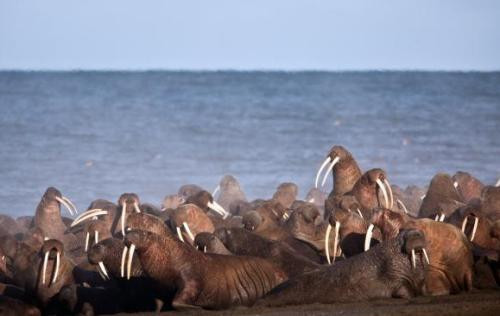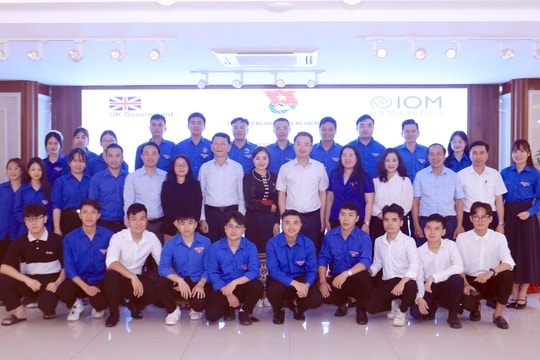Village begs tourists not to come
With no restaurants or hotels and to protect the growing herd of migrating walruses, the people of Point Lay, Alaska, USA, want tourists to stay away.
The Inuit (native Alaskan people) village of Point Lay on Alaska’s northwest coast is now home to a large population of Pacific walrus. About 6,000 of the animals have recently migrated closer to shore as the sea ice melts.
 |
| The massive walrus migration to Point Lay at the end of the year is the main reason why many tourists flock here. Photo: AP. |
This phenomenon attracts nature lovers who want to explore the natural world and see marine life with their own eyes. However, Point Lay currently has no restaurants, hotels and only 270 residents.
Tourist boats and planes still venture close to the walruses, the Inuit’s main source of food, and the village is now pleading with visitors to leave.
Andrea Medeiros, a representative of the US Fish and Wildlife Service (FWS), told AP: "There are many tourists coming but the locality has no place to stay. People can only tell tourists that they have to get back on the plane and go back. I think the situation is very strange for both sides."
Locals are also concerned about the safety of tourists, who must make a grueling journey to the barrier island to see the walruses. When the group ran into trouble for allowing photographers too close to the walruses, Lep Ferreira, president of the Point Lay National Council, said the village had no media policy for reporting on the migration. They are also working with the FWS to develop a “de-tourism” strategy, meaning they are begging visitors to stay away.
The organization has a $185,300 fund set up over the past two years to train local youth to film and photograph animals for educational purposes, learning about the age, sex and number of walruses that have died.
They began migrating more towards the northwest coast of Alaska in 2007, as rising temperatures caused the sea ice to move too far for the walruses to swim and forage.
According to VNE







.png)
